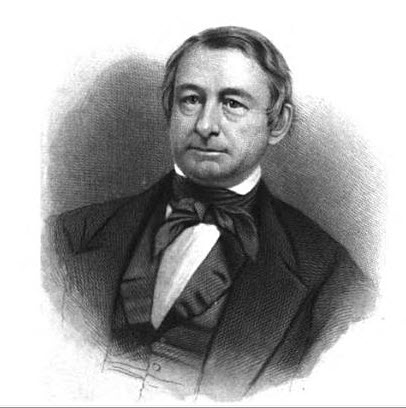March 16, 1841
- After serving two years in the House, Daniel
P. King was elected to serve in the state Senate, where he spent four years.
During his final term, he served as President of that body. On March 16, 1841
the Commonwealth of Massachusetts in the Senate, resolved, “That the thanks of
the Senate be offered to the Hon. Daniel P. King, for the faithful, just and
able-performance of his duties as President of the Senate. To the promptitude
and accuracy of his decisions, and his unfailing courtesy, we are indebted for
much of the harmony which has facilitated the business of the Session, and will
make our recollections of it pleasant.”[1]
Daniel was again sent to the House of Representatives by the town at
the general election of 1842. His reputation as a negotiator preceded him and
before the session opened, his expertise was sought regarding the choice of
Speaker of the House.
“The Legislature assembled under peculiar excitement. There was a
full attendance of the House; parties were known to be about equally divided;
political passions were running high in the Legislature and in the State; and a
much more than usual interest was felt in the organization of the House. On the
first ballot for Speaker, the whole number of votes was 350, necessary to a
choice 176. The regularly nominated Whig and Democratic candidates had 175,
within one of a choice, and the Whig candidate 174. On the third ballot the
Whig candidate had 175, within one of a choice.
As it was evident that one, at
least, of the scattering of votes could not be obtained for either candidate,
and an election seemed therefore impossible, the House adjourned. The balloting
was resumed the next day, and on the first count, Daniel P. King, who had not
received a vote the day before, was found to have 176, and was chosen, as each
of the regularly nominated candidates had, in turn, been defeated, by one vote.
“The Members who had, on the preceding ballots, thrown the
scattering votes, belonged, it is understood, to what was then called the
Liberty Party. Although Mr. King was an undeviating Whig, he was known to
cherish views on the Slavery question in advance of both the national parties,
and in advance of the times. This circumstance enabled his name to attract just
enough of the scattering votes, added to those of the Whig party, whose
candidate had withdrawn, and who, to a man, instantly rallied under his name, to
carry him in; and the exciting struggle came to a sudden conclusion. This
incident attending it and the manner in which the result had been reached,
naturally gave him a commanding position through the Commonwealth, associating
his name in the popular estimate with the idea of success.”[2]
